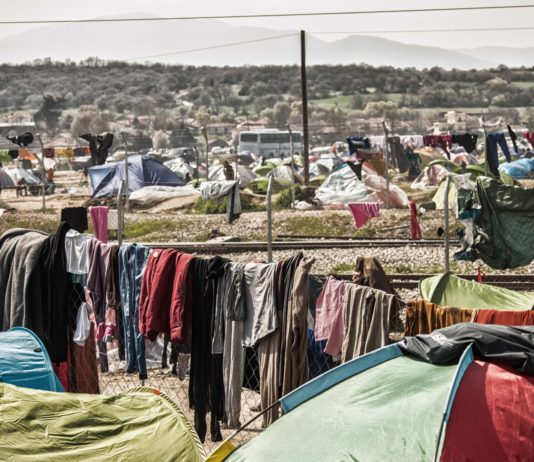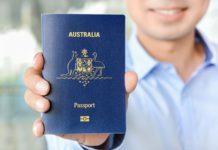Does s 501CA(4) require consideration of non-refoulement obligations?
High Court. Could the materiality test be expressed by saying that a person affected by an error "would need to show that there was at least a possibility" of a different outcome, had the error not been made? Is there anything "in the text of s 501CA, or its subject matter, scope or purpose, that requires the Minister to take account of any non-refoulement obligations when deciding whether to revoke cancellation of any visa that is not a protection visa where the materials do not include, or the circumstances do not suggest, a non-refoulement claim"?
Whether citizenship revocation would result in statelessness: jurisdictional fact?
Federal Court. Paragraph 34(3)(b) of Citizenship Act 2007 provided citizenship revocation could not occur if "the Minister is satisfied that the person would, if the Minister were to revoke the person's Australian citizenship, become a person who is not a national or citizen of any country". Is the question whether Applicant would become “a person who is not a national or citizen of any country” a jurisdictional fact, so that the Court can and should answer that question for itself? Is s 34(3)(b) a limitation upon, as opposed to a precondition for, the exercise of the power to revoke citizenship?
“No evidence” ground
Federal Court (Full Court). In the examination of facts on which a putative state of mind of an administrative decision-maker is founded, is a court limited to judicial review principles? Will that state of mind be vitiated if it is founded upon “findings or inferences of fact which were not supported by some probative material or could not be supported on logical grounds"? In BSE17, FCA held that a "no evidence" ground relating to administrative fact-finding in the course of the exercise of power (i.e. after the state of mind has been reached) cannot be made out even if a "skerrick" of evidence is available to support that fact-finding. In the formation of the state of mind, is a skerrick of evidence that is consistent with the fact-finding necessarily probative material?
s 494AB prohibits remittal? Jurisdiction for habeas implied in Constitution?
High Court. Does the fact that s 494AB(3) prohibits bringing certain matters in FCCA mean HCA cannot remit them to FCCA? Is the HCA and FCCA's jurisdiction for granting habeas corpus implied under s 75(v) of the Constitution? Plaintiff also sought a declaration that it is in the public interest for Minister to consider exercising power under s 197AB. Because of s 476(2)(d), a decision not to consider the exercise of the Minister's power under s 197AB is not reviewable by the FCCA. As the declaration sought does not involve such a decision, does FCCA have jurisdiction to make that declaration?
Student visa: GTE requirement interpreted
Federal Court. AAT wrote: "a successful applicant had to be both a genuine student and have a genuine intention to remain in Australia temporarily". Was AAT's approach wrong because "cl 572.223(1)(a) only requires a determination that the visa applicant intends genuinely to stay in Australia temporarily and ... there is no additional requirement that the applicant be a genuine student"? As studying in Australia would necessarily prolong Appellant's stay, was it wrong for AAT to reason that appellant wanted to prolong her stay? Was AAT required to make a finding in relation to each factor in Direction No 53?
Must AAT consider information considered by previous AAT?
Federal Court. If a decision-maker first states its conclusion and then talks about the evidence concerning that conclusion, does that indicate the decision-maker made the conclusion without considering that evidence? Does s 416 require AAT to refuse to consider the information that was before a previous AAT, or to have regard to the previous AAT's decision, or to take it to be correct? Can AAT adopt or accept the conclusion or the process of reasoning of a previous AAT in whole or in part?
Can decision-makers use common knowledge?
Federal Court (Full Court). In deciding not to revoke under s 501CA(4) the mandatory cancellation of Appellant's visa, Minister found that, in American Samoa and Samoa: English was widely spoken; Appellant and his family would have access to health and welfare services. Could Minister base those findings on common knowledge? Were they so based? Does the materiality test involve a court asking itself whether, in the absence of the error in question, the administrative decision-maker would have made a different decision? In the context of s 501CA(4), does the materiality test involve a balancing or a binary exercise?
Fraud “on” visa applicant: what must be proved and by whom?
Federal Court. When a visa applicant alleges fraud on the part of a representative in the lodgement of a visa application so as to establish that the application was invalid and thus avoid issues with s 48 and PIC 4020, what has to be proven and who bears the onus of proof?
Best interests of children a primary consideration?
Federal Court. If the parties to litigation agree on a principle, is that principle's precedential force diminished? Further, in Vaitaiki, Teoh was interpreted by: Burchett J as requiring decision-makers to take the best interests of children into account as a primary consideration if no notice to the contrary was given; Branson J as requiring decision-makers to treat those interests as a primary consideration. Is the error discussed in Teoh better characterised as one going to procedural fairness or as a failure to take into account a relevant consideration? If the former: is the procedural fairness obligation discussed in Teoh either subsumed within s 425 or not a matter dealt with by Div 4 of Pt 7 of the Act; should the FCA adopt Burchett J's or Branson J's interpretation of Teoh?
AAT required to conduct hearings in person?
Federal Court. Does FCA have jurisdiction to review a delegate's decision to refuse under s 501CA(4) to revoke the mandatory cancellation of a visa made under s 501(3A)? Can the self-represented Applicant's notice of appeal from the Minister's decision be treated, in substance, as: a notice of appeal from the Tribunal's decision; including an application for a time extension under s 477A(2)(a)? How should the FCA approach poorly-cast grounds of judicial review? Is the Tribunal required to conduct hearings in person?






















